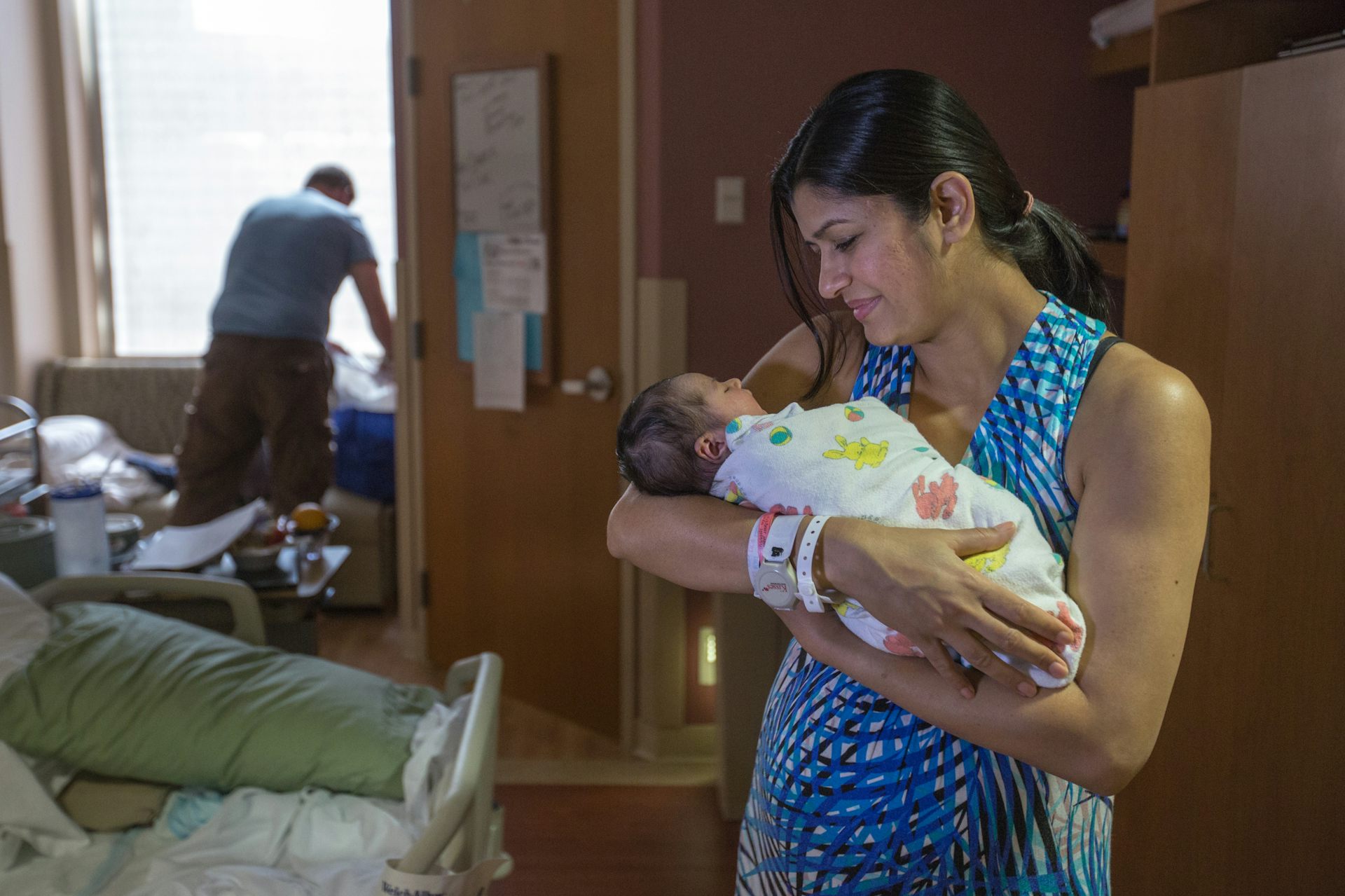What's in your genome? Parents-to-be want to know
We now have the capacity to quickly and cheaply sequence an individual's genome and scour it for disease-causing genes. But how much, and what type, of information does a parent-to-be want to know?

Every parent-to-be wants a healthy baby. And, when offered an opportunity, most couples want to know which disease-causing genes, or risk factors, they carry and could unwittingly pass to their children.
I’m a clinical molecular geneticist and wanted to understand exactly how much do people want to know about their genetic baggage. To address this question, I and a team of clinical geneticists, genetic counselors, laboratory geneticists and researchers screened approximately 200 healthy adults. We looked at 728 genes for disease-causing mutations and variants known to increase the risk of particular conditions.
What makes our tests different is that we are screening for a much larger number of genes and for all types of genetic defects not currently included in most of the clinically available carrier tests you would get from your OB-GYN. This information is critical for couples planning a family. But we discovered that collecting so much more genetic data raises a new set of complex issues that we have to address before such testing could be mainstreamed.
How much information do you want?
To prepare the participants for this potentially life-altering information, we provided genetic counseling before the genetic tests and again afterwards, as we gave them the results. Before an individual was tested, counselors asked what types of genetic conditions they wanted to receive. Did they only want to learn if they were carriers for serious life-threatening diseases or milder conditions as well? Did they want to know if they were carriers for diseases that hit in adulthood such as hereditary hemochromatosis, an overload of iron in the tissues and organs, or spastic paraplegia, a nervous system disorder that affects walking? And what about unpredictable genetic conditions like Factor V Leiden thrombophilia, a blood clotting disorder, or McArdle disease, in which the body can’t break down glycogen in muscle cells?
To our surprise, most people, 93 percent, wanted all of their carrier information. Furthermore, 99 percent wanted to know about medically actionable conditions that put them at risk for conditions like breast or colon cancer or a heart muscle condition like cardiomyopathy. This underscores that most individuals feel that access to knowledge empowers them to make informed medical decisions.
Why test individuals before conception?
The individuals who participated in our study, which was published in The American Journal of Human Genetics, were not affected by any known genetic condition. But our screening could reveal if a mother and father-to-be both carried a defect in the same gene. This is important information because if the child inherits one bad copy of the gene from each parent, then they suffer the disease. This is what happens in cystic fibrosis.
But with this new comprehensive genetic testing, couples who discovered that they both carried a genetic defect for the same inherited disorder can use this information to make informed reproductive decisions. They could opt for natural conception, prenatal diagnosis, pre-implantation genetic diagnosis, egg or sperm donation, or adoption.
As well as learning about people’s preferences for genetic testing results, we also discovered that most individuals carried between one and five disease-causing variants, which is a version of a gene known to raise the risk of a particular condition. This doesn’t mean that they will develop these diseases, but rather that they simply carry the gene defect and can pass it on to their children.
We also discovered that up to four out of every hundred participants carry a disease-causing variant that we call “medically actionable.” This means that a doctor can use the information to decrease the patient’s risk for disease with medications, or through lifestyle and environmental changes.
For example, we found some participants had a defect in the BRCA1 and BRCA2 genes that substantially increases a person’s risk to develop breast cancer and some other cancers. Knowing this information allows individuals to be closely monitored by medical screening procedures and eligible for potentially preventative treatment such as surgery. It also provides information for relatives who might want testing.
Should detailed genetic testing be available for everyone?
What made our study possible was new technology that enables us to sequence an individual’s entire genome – all 3 billion units of DNA – accurately and cheaply. The cost of sequencing alone for research purposes was approximately US$1,000, for each of the 200 participants. However, that did not cover the test interpretation or the genetic counseling costs. Geneticists have also become much better at interpreting the implications of carrying particular genetic variants.
Our test is not currently available to clinics that provide genetic screening services. But together with collaborators at the University of Washington and Kaiser Permanente NW, we studied whether we should offer this new technology to patients in the clinic.
One of the biggest challenges in clinical genome testing is how to determine whether a change in a gene is actually disease-causing or not. For our study we followed the recent guidelines on how to interpret these gene changes from the American College of Medical Genetics and the Association of Molecular Pathology, which proved extremely useful in determining which genetic changes caused disease and which ones did not in this healthy reproductive population. But this information is not yet widely understood by everyday OB-GYN clinics.
Another hurdle is wrangling the enormous amount of data that is generated from the sequence of each individual’s DNA. We haven’t figured out how to read an individual’s entire genetic code and, in the absence of clinical symptoms, interpret the health implications of the thousands of genetic variations.
So we need more clinical knowledge and predictive tools. Returning results in a timely manner – four weeks or less – is challenging but critically important for individuals planning when and whether to have families.
Although we have the ability to sequence a patient’s genome, it isn’t clear that this is something we should do. We need to figure out whether it is useful and ethical to give patients so much information when we can’t say for sure what the health implications will be.
In the long run, we also need to figure out whether this type of testing improves the health of the patient. Finding answers to these questions will require more studies and collaboration with professional genetics societies and opinion leaders. So although this type of screening may be available in the future, there is still much work to be done.
Carolyn Sue Richards receives funding from NIH.
Read These Next
When unpaid cooking, cleaning and child care get a dollar value, income inequality in the US shrinks
Women’s unpaid work at home has declined much more than men’s contributions have increased.
Public defender shortage is leading to hundreds of criminal cases being dismissed
There are never enough lawyers to provide indigent defense, but the situation has gotten worse since…
Are heroes born or made? Role models and training can prepare ordinary people to take heroic action
Heroes take a personal risk for the common good. Some people may just be born with the personality traits…






